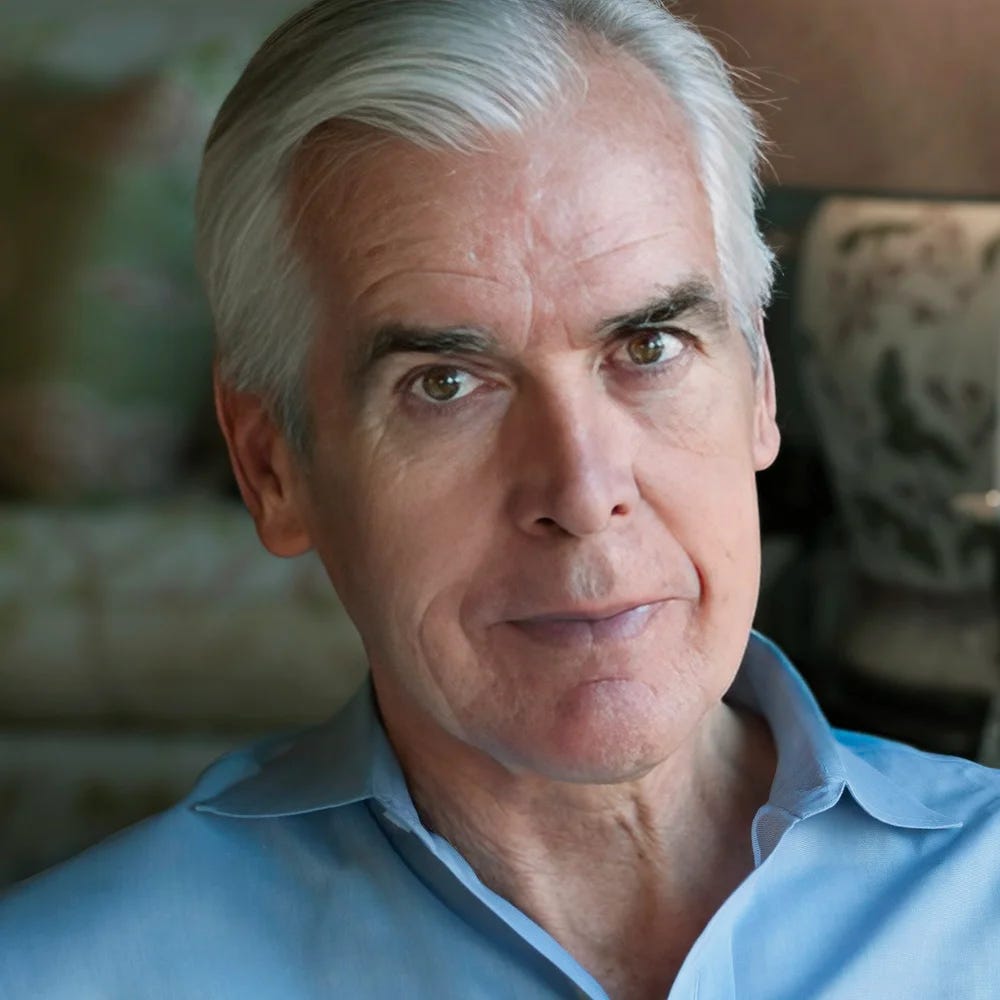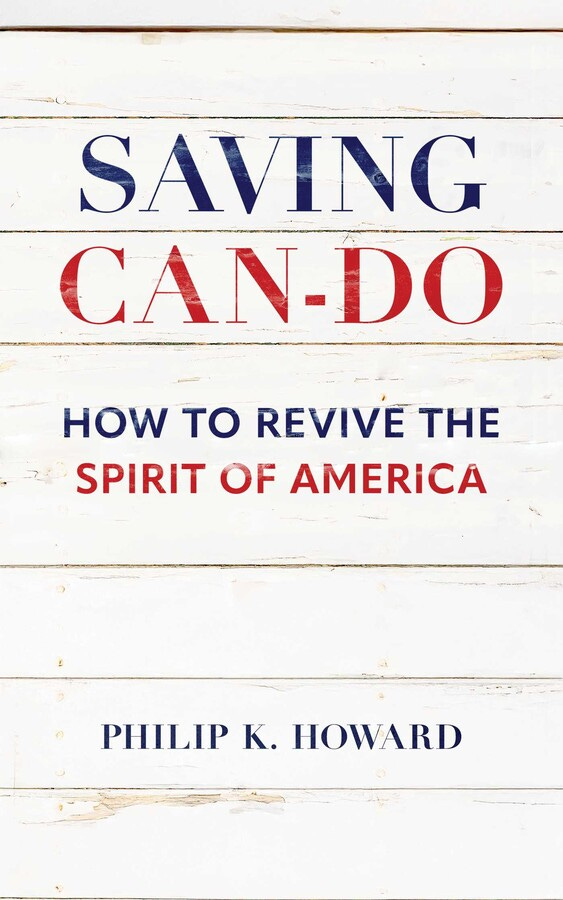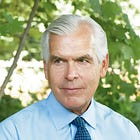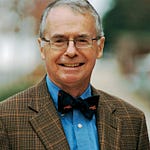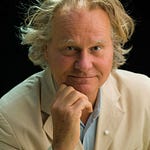PHILIP K. HOWARD is a distinguished lawyer, best-selling author, and proven civic leader. He is chair of Common Good, a nonpartisan organization aimed at simplifying government.
In his new book, Saving Can-Do: How to Revive the Spirit of America, Howard untangles the gordian knot of populism and broken governance seizing up the American experiment as we approach our 250th anniversary.
In this wide-ranging discussion, Howard points the way to update the operating system of our government, to liberate the American spirit. With a relentless focus on real-life results, Howard acknowledges the positives of Republican and Democratic notions of reform while pointing out their limitations.
Publisher’s Summary
Frustration with government is widespread, but neither party has a vision for making things work sensibly. In Saving Can-Do, Philip K. Howard shows how to revive our freedom to roll up our sleeves and act like Americans again.
All societies periodically undergo a major shift in the social order. America is at one of those moments of change, but neither political party is offering a vision for overhaul. President Trump’s approach to government is to swing a wrecking ball at the status quo. But how will Washington work better the day after DOGE? Democrats are in denial, waiting their turn to run a bloated government that Americans increasingly loathe.
In this brief, bold book, Philip K. Howard, the civic philosopher who advises leaders of both sides, offers a dramatically simpler governing vision: Replace red tape with responsibility. Let Americans use their judgment. Let other Americans hold them accountable for their results and their values.
In Saving Can-Do, best-selling author Philip K. Howard unlocks the quandary of populist resentment and also of broken government. Nothing works as it should because red tape has strangled common sense. Of course people don’t get along—we’re not allowed to be ourselves.
The geniuses in the 1960s tried to create a government better than people. Just follow the rules. Or prove that your judgment about someone is fair. But how do you prove who is selfish, or doesn’t try hard? Bureaucracy makes people go brain dead—so focused on mindless compliance that they can’t solve the problem before them.
America is flailing in legal quicksand. The solution is a new governing framework that allows Americans to roll up their sleeves and take responsibility. We must scrap the red tape state. What’s required is a multi-year effort to replace these massive failed bureaucracies with simpler codes that are activated by people using their judgment. The idea is not radical, but traditional—it’s the operating philosophy of the Constitution. As America approaches the 250th anniversary of the revolution, it’s time to reclaim the magic of America’s unique can-do culture.
Critical Acclaim
“It’s very good: short, to the point and suddenly in tune with the times.” — Clive Crook, Bloomberg
“This brief, accessible and powerfully persuasive book assesses the symptoms of our ailing polity and concludes that we are suffering from a widespread loss of agency, the lifeblood of any free society.” — Yuval Levin, The Wall Street Journal
“[Howard] is a genteel inveigher against the coagulation of American society, which is saturated with law. In his new book “Saving Can-Do: How to Revive the Spirit of America,” he argues that law’s proper role is preventing transgressions by authorities, not micromanaging choices so minutely that red tape extinguishes individual responsibility and the social trust that individualism engenders.” — George Will, The Washington Post
“When regular people seem burdened by bureaucracy, and the powerful act as they choose, it’s worth asking whether we’ve forgotten what makes rules effective.” — Joshua Rothman, The New Yorker
“[Howard’s] concern these days—and the focus for much of his latest book—has less to do with the wrecking ball that has been tearing through Washington than the question of what comes next....Saving Can-Do is a slim volume, coming in at just under 140 pages, including notes. But don’t let its modest size fool you. This book packs a powerful punch.” — Lou Zickar, The Ripon Forum
“Short, to the point.” — Tyler Cowen, Marginal Revolution
Saving Can-Do is a “common-sensical and psychologically astute book to address the public anger and frustration about the failures and paralysis of government at all levels.” — Robert Whitcomb, GoLocalProv
“[Howard’s] proposals are specific and practicable. This is an important book, which is also highly readable.” — Jonathan Leaf, Jonathan’s Substack
“The more rules we have the better, right? Wrong! Beyond a certain point, additional rules add no benefit, and even more rules begin to have negative consequences. The reason is embedded deeply in our cognitive architecture. We only can process a limited number of new elements of information at a given time. Beyond that limit, the system collapses, and we end up having no choice but to ignore all the rules. Philip Howard’s valuable new book, Saving Can-Do, documents the processes and their consequences.” — Professor John Sweller, University of New South Wales
About the Author
Philip K. Howard is a leader of government and legal reform in America. He is Chair of Common Good and a bestselling author, and has advised both parties on needed reforms. In Everyday Freedom, he pinpoints the source of powerlessness that is fraying American culture. In Saving Can-Do (Rodin Books, September 2025), he provides a framework to alleviate populist resentment and revive human responsibility at all levels of society.
Philip is the author of the bestseller The Death of Common Sense (Random House, 1995), The Collapse of the Common Good (Ballantine Books, 2002), Life Without Lawyers (W.W. Norton, 2009), The Rule of Nobody (W.W. Norton, 2014), Try Common Sense (W.W. Norton, 2019), and Not Accountable (Rodin Books, 2023). His commentaries are published frequently in major media outlets.
In 2002, Philip formed Common Good, a nonpartisan coalition dedicated to simplifying laws so that Americans can use common sense in daily choices. His 2010 TED Talk has been viewed by more than 750,000 people. His 2015 report, “Two Years, Not Ten Years,” exposed the economic and environmental costs of delayed infrastructure approvals, and its proposals have since been incorporated into federal law. Philip has appeared often on television and radio, including several times on Jon Stewart’s “The Daily Show.”
The son of a minister, Philip got his start working summers at the Oak Ridge National Laboratory for Nobel laureate Eugene Wigner. He has been active in public affairs his entire adult life. He is Senior Counsel at the law firm Covington & Burling, LLP. A graduate of Yale College and the University of Virginia Law School, Philip lives in Manhattan with his wife Alexandra. They have four children.
Image Credits | Philip K. Howard, philipkhoward.com




